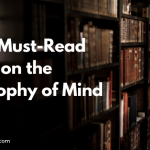Table of Contents
- What is Existentialism?
- Why Read Existentialism?
- The Top 7 Existentialism Books
- 1. “Being and Nothingness” by Jean-Paul Sartre
- 2. “The Stranger” by Albert Camus
- 3. “Fear and Trembling” by Søren Kierkegaard
- 4. “No Exit” by Jean-Paul Sartre
- 5. “The Myth of Sisyphus” by Albert Camus
- 6. “Thus Spoke Zarathustra” by Friedrich Nietzsche
- 7. “Man’s Search for Meaning” by Viktor E. Frankl
- FAQs about Existentialism
- Conclusion
What is Existentialism?
Existentialism is a philosophical movement that emphasizes individual existence, freedom, and choice. It posits that individuals are responsible for giving their own lives meaning and living authentically in a world that may seem indifferent or absurd. Originating from the works of philosophers like Søren Kierkegaard and Friedrich Nietzsche, existentialism gained prominence in the 20th century through figures such as Jean-Paul Sartre and Albert Camus.
“Existentialism is not a philosophy of despair, but rather a philosophy of hope and possibility.”
The core tenets of existentialism challenge readers to confront fundamental questions about existence, purpose, and the nature of reality. This philosophy encourages a deep exploration of personal beliefs and the societal structures that shape our understanding of life.
Why Read Existentialism?
Reading existentialist literature can be a transformative experience. Here are a few reasons why you might consider diving into this philosophical realm:
- Personal Reflection: Existentialism encourages readers to reflect on their own lives and values. It prompts questions that are often uncomfortable but necessary for personal growth.
- Understanding Absurdity: In a world that can sometimes feel chaotic and meaningless, existentialist texts offer insights into embracing life’s absurdities and finding personal meaning.
- Cultural Relevance: Many existentialist ideas resonate with contemporary issues, including mental health, identity, and social justice. Engaging with these texts can enhance your understanding of modern societal challenges.
“Reading existentialism is like holding a mirror to your soul; it reflects your deepest fears and hopes.”
The Top 7 Existentialism Books
1. “Being and Nothingness” by Jean-Paul Sartre
Sartre’s magnum opus is a dense yet rewarding text that lays the groundwork for existentialist thought. It explores concepts such as consciousness, freedom, and the idea of “bad faith,” where individuals deceive themselves to escape the responsibility of choice. While it may take time to digest, this book is essential for anyone serious about understanding existentialism.
Key Themes: Consciousness, Freedom, Bad Faith
Learn more about “Being and Nothingness” at Stanford Encyclopedia of Philosophy.
2. “The Stranger” by Albert Camus
This iconic novel tells the story of Meursault, a detached and indifferent character whose journey raises questions about morality, societal norms, and the absurdity of life. Camus masterfully illustrates the struggle between individual existence and societal expectations, making this book a poignant read for anyone grappling with the meaning of life.
Key Themes: Absurdism, Indifference, Alienation
Explore the themes in “The Stranger” at SparkNotes.
3. “Fear and Trembling” by Søren Kierkegaard
In this philosophical work, Kierkegaard examines the biblical story of Abraham and Isaac, exploring the concept of faith and the tension between ethics and divine command. His exploration of the “leap of faith” challenges readers to consider their own beliefs and the nature of true faith.
Key Themes: Faith, Ethics, Individualism
Discover more about Kierkegaard’s ideas at the Internet Encyclopedia of Philosophy.
4. “No Exit” by Jean-Paul Sartre
This one-act play presents a chilling depiction of hell, where three characters are trapped together for eternity. Sartre famously states, “Hell is other people,” highlighting the theme of self-deception and the way we perceive ourselves through the eyes of others. This thought-provoking work is both engaging and unsettling.
Key Themes: Self-Perception, Interpersonal Relationships, Freedom
Read a summary of “No Exit” at CliffsNotes.
5. “The Myth of Sisyphus” by Albert Camus
In this essay, Camus introduces the concept of the absurd hero through the myth of Sisyphus, condemned to roll a boulder up a hill only for it to roll back down each time. Camus argues that one must imagine Sisyphus happy, finding meaning within the struggle itself. This work is a powerful exploration of resilience in an indifferent universe.
Key Themes: Absurdism, Resilience, Meaning
Learn about Camus’s philosophy at the Internet Encyclopedia of Philosophy.
6. “Thus Spoke Zarathustra” by Friedrich Nietzsche
Nietzsche’s philosophical novel presents the character Zarathustra, who shares profound insights on topics such as the “will to power” and the idea of the “Übermensch” or “Overman.” This text challenges conventional morality and invites readers to create their own values in a world where traditional beliefs are in decline.
Key Themes: Will to Power, Morality, Individualism
Find out more about Nietzsche’s philosophy at Stanford Encyclopedia of Philosophy.
7. “Man’s Search for Meaning” by Viktor E. Frankl
In this poignant memoir, Frankl, a Holocaust survivor and psychiatrist, explores the human capacity to find meaning even in the most horrific circumstances. He introduces the concept of logotherapy, emphasizing that the search for meaning is the primary motivational force in human beings. This book is not only a testament to resilience but also a practical guide to finding purpose in life.
Key Themes: Meaning, Resilience, Suffering
Read more about Frankl’s theories at Verywell Mind.
Also Look For
For a broader exploration of literature and philosophical themes, consider delving into classic literature that shapes our understanding of human existence. Works such as “Crime and Punishment” by Fyodor Dostoevsky and “The Trial” by Franz Kafka also present existential themes relevant to modern discussions. You can find more about these timeless classics in our articles:
- Top 10 Must-Read 19th Century Classics for Every Book Lover
- 10 Essential Postcolonial Classics You Must Read Today
FAQs about Existentialism
What are the main ideas of existentialism?
Existentialism primarily focuses on individual freedom, choice, and the search for meaning in an indifferent universe. It highlights the importance of personal responsibility and the necessity of creating one’s own values.
Who are the key figures in existentialism?
Prominent existentialist thinkers include Jean-Paul Sartre, Albert Camus, Søren Kierkegaard, Friedrich Nietzsche, and Simone de Beauvoir, among others.
“Existentialism invites us to confront our own existence and the choices we make, urging us to find meaning in every moment.”
How does existentialism relate to modern life?
Existential themes often resonate with contemporary issues like identity crises, mental health challenges, and the search for authenticity in a rapidly changing world.
Is existentialism a pessimistic philosophy?
While existentialism acknowledges the absurdity and challenges of life, it also emphasizes the power of individual choice and the potential for personal fulfillment, making it a philosophy that invites hope and action.
Conclusion
Existentialism is a rich and thought-provoking field that offers profound insights into the human experience. The books highlighted in this article are not only foundational texts in existentialist philosophy but also compelling reads that can challenge your perspective and inspire personal reflection.
“Engaging with existentialist literature is like embarking on a journey; it challenges you




